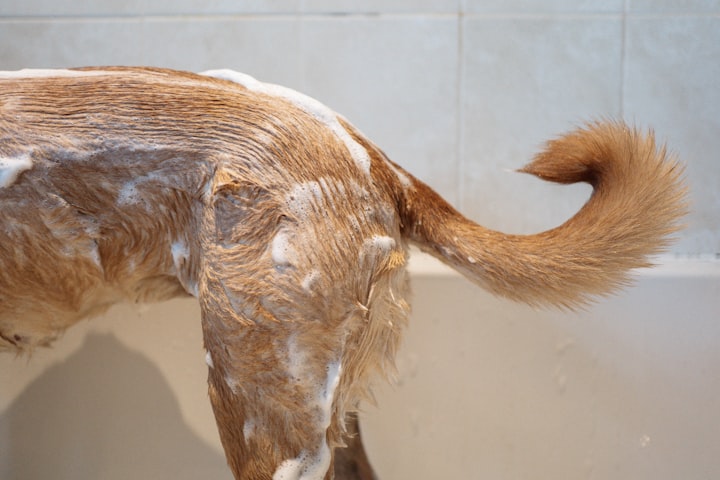PETA is Against the Conservation of Animals
Is the animal rights movement ethical?

PETA is Against the Conservation of Animals
Humans can be selfless, but it is undoubtedly a learned trait. In the Neolithic era, we were born selfish for our own survival because not everyone had a chance. With the comfort of modern society, people can afford to care for themselves and others. Today, humans have evolved to a point where they can deny their natural instincts for the sake of society, ethics, and sometimes causes. For example, PETA is an animal rights activism group that claims to care more about animals than themselves,“People couldn’t believe we were defending chickens”, recalled Ingrid Newkirk, the founder of PETA, in the documentary, “I Am An Animal” (00:07:00). PETA is a seemingly prime example of people working against their primal nature, but it turns out that PETA’s campaign for animals might actually be self-motivated, rather than ethical.
First of all, the way that PETA treats activism as a brand exploits animals in order to further its business. PETA is the world’s largest animal rights group, operating at 30 million dollars with profit, running mainstream celebrity ads, “PETA spends less than one percent of its multimillion-dollar budget actually helping animals” (Activist Facts). It is often funded by well-intentioned individuals interested in helping animals, “The leadership of PETA is less interested in helping the animals than they are in marketing that it’s bad out there, so give us money and we’ll stop it ” (I Am An Animal 00:10:06). One famous, or maybe infamous, example of a PETA advocate who exploits animals is Carole Baskin on the show, Tiger King. Her assets are worth 5 million dollars, and she derives a paycheck by giving tours of the Big Cat Rescue grounds. It’s clear to her competitor, Joe Exotic, that the grounds aren’t so much for rescue as they are for profit, “She can make all these people think that everybody else in society is an abuser but her. She’s a master marketer. I’ll give her that” (Tiger King Ep2 00:30:16). Like her animal rights associates, PETA, Carole seems to have cornered the market in animal sympathy, making thousands each week from social media websites advertising her cause.
All things considered, maybe using animals as a marketable tool is the only way they can survive in our capitalist society, since their home in the wild has been destroyed, “There are more captive tigers in the US than there are in the wild” (Tiger King Ep2 00:24:32). Ideally animals would run free, but if this is an impossibility, it’s better people like Baskin own a sanctuary. Unfortunately, PETA doesn’t support the one thing that that flower-wearing goon does well, “it kills 84 percent of supposedly "unadoptable" animals within 24 hours of their arrival.” (Mcwilliams). When PETA finds a starving animal on the side of the road, they could save its life if only they would tolerate a captive animal.
It may seem counterintuitive, but the animal rights movement is against the conservation of animals. Besides the 84 percent of perfectly adoptable animals they kill, organizations like PETA are also in support of banning hunting, which has created areas with dreadful environmental deterioration because when populations aren’t controlled, they degrade other local ecosystems. Glen martin has spent 7 years considering this very phenomenon in Game Changer, “Kenya has a ban on hunting, yet its wildlife populations have declined 70 percent since the law was implemented in 1977” (Martin 131). Animals should be in captivity maintained by regulation because unfortunately the world we live in won’t sustain every species. When animal rights activists get involved, they’re rightfully concerned, so they implement an ignorant policy that exacerbates the issue.
Even though PETA pulls on the heartstrings of animal sympathizers to make money, they may actually be doing so as a means to what they perceive is an ethical end. PETA infiltrates corporations to take video proof of animal abuse, encouraging their interns to gain access into large businesses for the sole purpose of exposing illegal/unethical practices. The risk that goes into such a thing shows their devotion to the task, specifically because it’s those that follow PETA that are infiltrating such facilities that they disagree with vehemently, “it takes a part of your soul and breaks it” (I Am An Animal 00:33:20). In this way, PETA has brought attention to the horrible mistreatment of animals in processing plants.
Even if their profits don’t go directly to the animals (Other than that measly less than 1%.), PETA clearly dedicates time and energy into spreading awareness for their cause. Perhaps PETA actually believes that killing animals is euthanasia. Perhaps donations allow PETA workers to help animals instead of allocating time to a job to pay for the cost of living. People, however, are donating to these causes on the pretense that their money will go straight to helping animals, “PETA collected almost $42 million in donations in 2015 alone, but few donors understand exactly where their money is going” (Activist Facts). An organization with over 30 million dollars in budget that allows workers to focus on their cause can do better than spread awareness.
Is PETA’s Campaign for Animals Actually Ethical? Well, it’s hard to say because their intention is admirable, but their execution is so poor that it’s harmful. PETA profits so much from their business that it’s enough to live off of, giving them time to allocate to the cause that they claim to be sympathetic towards, and yet, the only thing they’ve been able to do so far is little more than make us sad for money (and raise awareness as a positive externality). Worst of all, organizations such as this are the very reason conservationists won’t be able to save dying creatures because they don’t support regulation such as captivity and hunting. PETA’s campaign is self-motivated, but their leadership doesn’t reflect the individual conservationist with a beating heart. This is the story of a corrupted cause; One that can only be mended by tender hands.
Works Cited
“Carole Baskin Net Worth 2020: How Much Is Carole Baskin Worth in 2020?” The Cinemaholic, 28 Mar. 2020, www.thecinemaholic.com/carole-baskin-net-worth/.
Chaiklin, Rebecca and Eric Goode, directors. Tiger King: Netflix, Netflix, 20 Mar. 2020, https://www.netflix.com/title/81115994.
Galkin, Mathew, director. I Am an Animal: The Story of Ingrid Newkirk and PETA . H.B.O., 2007.
Martin, Glen. Game Changer. 1st ed., Berkeley, Calif : University of California Press, 2012.
McWilliams, James. “PETA's Terrible, Horrible, No Good, Very Bad History of Killing Animals.” The Atlantic, Atlantic Media Company, 12 Mar. 2012, www.theatlantic.com/health/archive/2012/03/petas-terrible-horrible-no-good-very-bad-history-of-killing-animals/254130/.
“People for the Ethical Treatment of Animals (PETA): Funding Sources, Staff Profiles, and Political Agenda: Activist FactsActivist Facts.” Activist Facts, www.activistfacts.com/organizations/21-people-for-the-ethical-treatment-of-animals/.
About the Creator
Gabrielle Kelley
Set your expectations low, folks






Comments
There are no comments for this story
Be the first to respond and start the conversation.